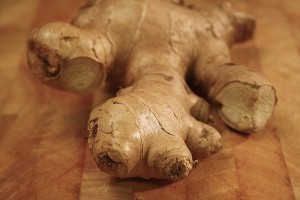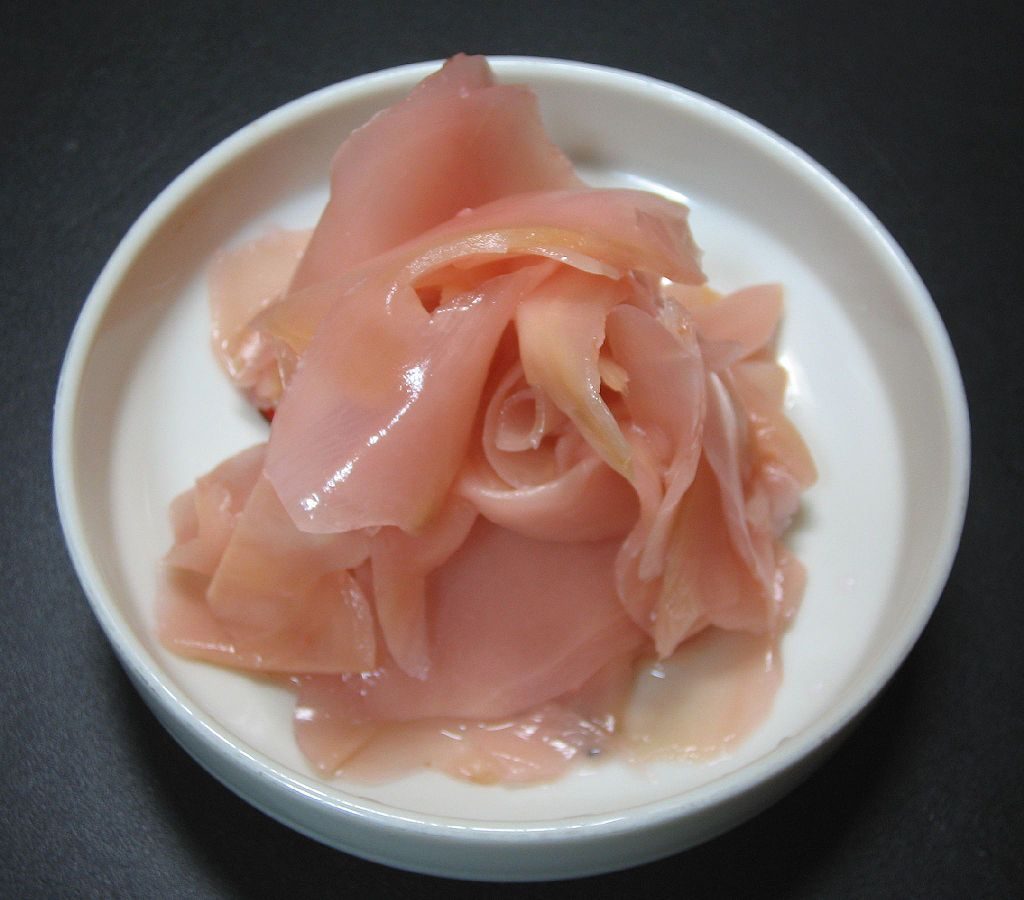Asian herbal spice ginger seems to improve rheumatoid arthritis.

SA-2.0], via Flickr
Popular Asian herb ginger is believed to have soothing and restorative properties. It seems to support optimal joint health through:
- Reducing inflammation. By reducing inflammation ginger seems to significantly improve symptoms of common joint conditions such as arthritis.
Overview
Ginger, Zingiber officinale, is a perennial flowering plant originating from the rainforests of Southern Asia. It was first exported to Europe as part of the international spice trade in the 1st century AD and has since then been cultivated for its alluring flowers and the restorative properties of its root (rhizome).
Ginger root widely enjoyed as a hot, fragrant kitchen spice and as an ingredient in many cuisines. Meanwhile in health and medicine, ginger root has been consistently used to treat stomach issues, including morning sickness, nausea, diarrhea, and upset stomach, immunity-related concerns, and other conditions.
It is also believed that ginger helps reduce inflammation, which has made it a promising remedy for aching or sore muscles and joint conditions such as arthritis. This is why you’ll often find it as one of the ingredients in joint supplements.

How Ginger May Help With Joint Health
Ginger seems to improve rheumatoid arthritis by:
Reducing inflammation
Inflammation is the central process involved in rheumatoid (autoimmune) arthritis. Researchers have found that certain ingredients in ginger help reduce this inflammation by affecting the levels of both pro and anti-inflammatory molecules. 1 2

Ginger Benefits & Uses for Joint Health
Ginger’s anti-inflammatory effects mean that people can use it for a wide range of conditions characterized by inflammation. In the context of joint health, ginger helps reduce the symptoms of autoimmune (rheumatoid) arthritis, which include pain, swelling, soreness, and lack of joint mobility.3 Studies have also highlighted ginger’s potential to reduce muscle soreness (stronger and healthier muscles near joints are ideal for optimal joint recovery) and even prevent the deterioration of cartilage.
Research
Animal Research
Animal research shows several beneficial joint-related activities of ginger:
- Reducing general inflammation in mice.4
- Ameliorating arthritis by reducing cartilage destruction and joint swelling in sows, mice, and other animals with rheumatoid arthritis.5 6
Human Research
Clinical studies demonstrate ginger’s capacity to reduce symptoms of arthritis.
Ginger may be highly effective at improving rheumatoid arthritis
This study examined the use of ginger for rheumatoid arthritis. The researchers examined 7 people with RA who only received temporary relief from standard medication. After consuming 5 – 50 g of fresh ginger (or 0.5 – 1 g ginger powder) daily for several months, all patients saw significant improvement in pain, joint movement, swelling, and morning stiffness, with 1 patient becoming completely symptom-free after 3 months.
- The researchers concluded that “In view of the beneficial effects that were observed on administration of ginger to patients without any side effects during the study period, and its reputation as a remedy for arthritic disorders in the Ayurvrdic and Tihh systems of medicine, a thorough study of this edible rhizome’s potential as a safe anti-inflammatory agent should be undertaken.“7
Ginger (510 mg) does not seem to help osteoarthritis
In this placebo-controlled, double blind, double-dummy, cross-over investigation, 75 patients with osteoarthritis were given either a placebo, Ibuprofen, or 170 mg of ginger extract 3 times daily for 3 weeks. Based on the Friedman test and the Lequesne index, ginger had no significant effect on osteoarthritis, although some improvement was reported based on exploratory tests.
- The study concluded that “a statistically significant effect of ginger extract could only be demonstrated by explorative statistical methods in the first period of treatment before cross-over, while a significant difference was not observed in the study as a whole.”8
Ginger (2 g) may relieve pain due to exercise and inflammation
In this set of identical double-blind, placebo-controlled, randomized investigations, 34 participants took either placebo or 2 grams of raw ginger (in study 1) or heated ginger (in study 2) every day for 11 days. In both ginger groups, participants had reduced muscle pain from exercise and inflammation-induced injury.
- The study concluded that “daily consumption of raw and heat-treated ginger resulted in moderate-to-large reductions in muscle pain following exercise-induced muscle injury. Our findings agree with those showing hypoalgesic effects of ginger in osteoarthritis patients and further demonstrate ginger’s effectiveness as a pain reliever.“9
Ginger (1 g) may reduce pain in knee arthritis
In this double-blind, placebo-controlled, crossover investigation, 19 patients with gonarthritis were given placebo or 250 mg of ginger extract 4 times a day for a 6-month period. Ginger was found to significantly reduce knee pain and measure of handicap after 3 months compared to placebo.
- The study concluded that “Zintona EC was as effective as placebo during the first 3 months of the study, but at the end of 6 months, 3 months after crossover, the ginger extract group showed a significant superiority over the placebo group.”10

Dosage for Joint Health
- Successful research studies use 510 mg – 2 g doses of ginger per day
- Typical ginger supplements come in 550 mg capsules , taken 1 – 3 times daily, but can also come in liquid extract, tea, and other forms
Supplements in Review Says
- Ginger root 550 mg 1-4 times daily for joint health.
We recommend ginger for dealing with rheumatoid arthritis (RA). Ginger root extracts seem capable of improving RA symptoms by reducing the underlying inflammation.
2 grams per day seems to be the maximum effective dose. Most ginger supplements recommend taking about 550 – 1650 mg daily, which can be brought up to 2000 mg to match the maximum dosage used by clinical research.
Leave a Reply